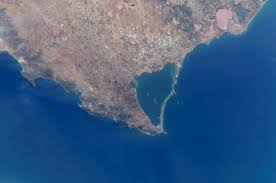The Importance of Coral Ecosystems in Today’s Environment

Introduction
Coral reefs are among the most diverse and productive ecosystems on the planet, providing habitat for countless marine species and supporting local economies through tourism and fishing. However, these vibrant ecosystems are under severe threat from climate change, pollution, and human activity. Understanding the current state of coral reefs is critical not only for marine life but also for global environmental health.
Current Threats to Coral Reefs
Recent reports highlight that 75% of the world’s coral reefs are currently threatened, with a significant percentage suffering from severe degradation. The most pressing issue is climate change, which leads to coral bleaching – a phenomenon where corals expel the algae living in their tissues, causing them to turn white and increasing their risk of dying. The Great Barrier Reef, for instance, has experienced three major bleaching events in the last five years alone.
Earlier in 2023, a study published in the journal Nature revealed that the rate of coral bleaching has accelerated, with average sea temperatures reaching alarming highs. Moreover, pollution from coastal development and agricultural runoff continues to threaten coral health by leading to nutrient loading and sedimentation.
Conservation Efforts
In response to these urgent threats, conservationists and marine biologists are implementing various strategies to protect and restore coral reefs. Innovative techniques such as coral gardening, where fragments of coral are cultivated in nurseries and then replanted, have shown promising results. Additionally, efforts to establish marine protected areas have increased, with 7% of the global ocean now designated as such.
International collaboration is also vital, with initiatives like the Coral Triangle Initiative, aiming to protect the vast biodiversity of coral reefs across Indonesia, Malaysia, the Philippines, and several other countries. These partnerships highlight the need for a united global approach to coral conservation.
Conclusion
As coral reefs face unprecedented challenges, awareness and action are key to their survival. The degradation of these ecosystems not only affects marine biodiversity but also has implications for human communities worldwide. Moving forward, it is crucial for governments, communities, and individuals to engage in sustainable practices that ensure the protection of coral systems. Without concerted efforts, we risk losing these invaluable ecosystems, along with the myriad of benefits they provide to humanity and the environment.
You may also like

Understanding the Role of Sharks in Marine Ecosystems

Understanding the Mar Menor: Challenges and Conservation

After the Hunt: The Ongoing Need for Wildlife Conservation
SEARCH
LAST NEWS
- Remembering Wendy Richard: The Promise to Co-Star Natalie Cassidy
- How Did Anglian Water Achieve an ‘Essentials’ Rating for Mental Health Accessibility?
- Shai Hope Leads West Indies in T20 World Cup Clash Against South Africa
- What We Know About Weston McKennie: Future at Juventus and Past at Leeds
- What We Know About the Upcoming Live Nation Antitrust Trial